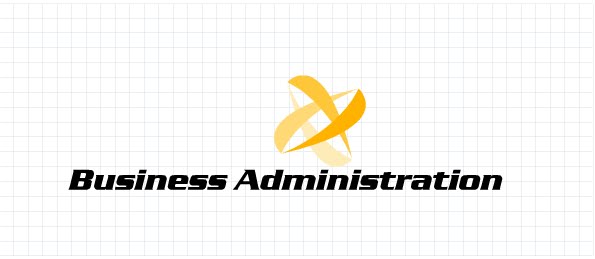Indian Retail Sector is One of India’s fastest growing sector.
Retail sector is India’s basic to growth after agriculture sector.
Indian Retail employee’s more than 7% of Nation’s workforce and stands 2nd after agriculture.
Indian Retail Sector has the highest outlet density in the world with nearly 12 million outlets.
Indian Retail employee’s more than 7% of Nation’s workforce and stands 2nd after agriculture.
Indian Retail Sector has the highest outlet density in the world with nearly 12 million outlets.
So you may guess how big Indian retail sector is and its economic importance in India.
Indian Retail sector has evolved slowly and steadily from its basics and still exists in various forms, right from very traditional to modern trends.
You can still have glimpse of the traditional retails even in cities and in rural India, while the new retail format is becoming popular in cities as well as in emerging rural India.
Many changes have come in Indian retail industry which transformed this industry.
The above picture shows how Indian retail sector have evolved.
The upper horizontal line signifies time frame, the lower horizontal line shows significant changes in the shopping behavior and the boxes in between shows the Phases of Indian Retail.
Prominent Sectors in Indian Retail
ü Food and Grocery
ü Clothing and Textiles
ü Consumer Durables
ü Footwear
ü Jewelry Retail
ü Books, Music and Gift retail
ü Fuel Retail/Petro Retail
Prominent Players in Indian Retail
ü Future Group – Big Bazaar, Pantaloon, eZone.
ü Reliance – Reliance Fresh
ü Tata – Croma Electronics Retail
ü Videocon- Next Electronics Retail
ü Mobile Phone Retail – Hotspot (Spice Retail)
ü Restaurants – McDonalds
ü RPG Group – Food World, Health and Glow.
ü Raheja’s – ShoppersStop
ü Cinema Chains – PVR, DT Cinema’s by DLF, CineMax, Reliance Big Entertainment
NEW PHASE of INDIAN RETAIL
Mall culture has come in to fashion in last 8-9 years and today people have really started shopping from these retail malls. Though most of us still prefer purchasing from local vendors because of their very competitive and many a times better offerings.
Prominent players of Indian retail sector have started introducing personal brands.
Future Group owned Pantaloon retail outlets, Big Bazaar, eZone have come up with its own personal brands.
In Electronic segment, Big Bazaar has launched “Koryo” brand nearly a year back in 2009.
Koryo range includes home appliances like television, mixer grinder and other similar home appliances.
Future Bazaar’s Pantaloon also has launched personal brands for its various segments in fashion clothing.
Big Bazaar has also launched new toothpaste few months back, with its brand personality “Sachin Tendulkar”, the toothpaste was named as “Sach”, and is promoted by Sachin Tendulkar’s image over the packaging. Though Big Bazaar by now has not done enough marketing and ad campaigns for this product. Many of you will be surprised to know any such products do exist. But these tooth paste’s can be found easily in Big Bazaar.
Tata Croma, One of the biggest players in Indian Electronics retail sector is all set to launch its own electronics brand in LCD television, washing machine and other electronic brands.
Videocon owned “next” electronic retail store is also set to introduce its own private labels.
Reliance Retail is also set to introduce its private label brands.
Mahindra, one of the biggest giant in automobile sector, has also jumped in retail sector, with its chain of retail outlets branded as “Mom and Me”. Targeting family with kids. Check out momandme.in.
Dhiraj and Son’s a local retail player has already introduced private label brands in commodity sector like food grains, and other small scale daily used home products.
Why Private Label:
Private Label has quite good chances to succeed and can really become a headache for the manufacturers, who have been selling there products from these retailers.
You can say Private Label is a backward integration done by retailers.
The main benefit includes, the removal of a phase of buying and selling between the manufacturer and retailers and hence profit to final consumer and the retailers.
These private labels will give significant competition and have high chances to succeed because of following reasons.
1. As these brands are developed by retailers themselves the cost to serve and deliver to customer’s decreases significantly hence increased profit margins. Currently these private brands are easily getting a profit margin between 15-22 percent.
2. Consumer does also get these private label products at a lower rate (nearly 10 %) when compared to existing brands. Hence chances of purchase increase because of price factor.
3. Retail stores are currently offering more warranty and easy services on their own private label brands.
4. Retailers have very high knowledge about consumer behavior when compared to manufacturers as they have been in constant touch with consumer since years. This knowledge will result in to very innovative and customized offerings for the customers.
5. Influence: Retailers have quite good amount of influencing power over consumers. Recommendation by ground sale person has good amount of influence on actual purchase. When these retailers will have their own product, it is quite natural that these ground salesmen will promote their own products moreover retailers will be offering good incentives to them for doing the same.
6. Retailers are no more just retailers, they are now a good marketer, they do advertisement, branding, they manage their retail outlets professionally, and do whatever a customer counts upon.
7. Big retailers have now started hiring talented and well qualified people.
Above factors clearly shows that there are quite good chances for private labels to succeed in future and the big threat to prominent players and manufacturers.
These private labels will change the face of Indian retail.
Only the time will give the accurate answers.
Best Regards,
Navneet Singh Chauhan.

